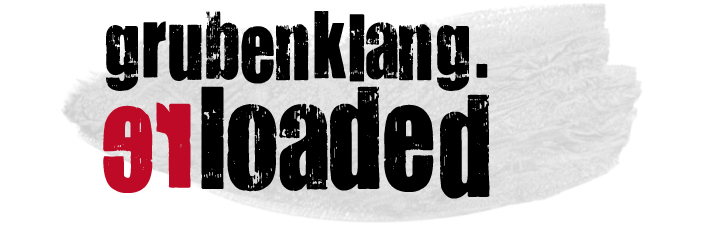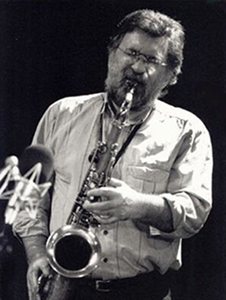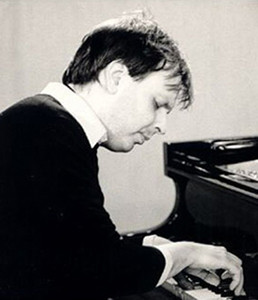October 11th, 2010
News 22

special
October 29, 2010, 8 PM
domicil // Hansastraße 7-11 // 44137 Dortmund // www.domicil-dortmund.de
Evan Parker meets Georg Graewe in concert
|
||
| Evan Parker (1997) |
Georg Graewe (1987) |
Photos: Dagmar Gebers |
When Max Roach and Cecil Taylor gave their historic duo concert at Columbia University in late 1979, it was hailed as a summit meeting between two generations of jazz masters. This was something of a misnomer that spoke more to the perception that the drummer and the pianist represented different eras of jazz history rather than to their actual ages – Roach was only five years older than Taylor. This faulty generational construct has also been present in the discussion of improvised music in Europe, particularly in the UK, where at least three generations of improvisers came of age between 1965 and 1985.
Evan Parker is twelve years older than Georg Graewe, a gap more than twice that separating Roach and Taylor. However, there’s a countervailing metric, albeit a fanciful one, which places the saxophonist and the pianist in closer historical proximity. It is the FMP catalog. The Berlin-based label had issued 31 albums over seven year prior to New Movements, the then 20 year-old pianist’s debut, in 1976; Parker played on seven of them, including Peter Brötzmann’s Machine Gun and three Globe Unity Orchestra recordings. Graewe led a new “generation” of improvising musicians into a historyshaping catalog, one comprised of the core documents of first generation European improvisers like Brötzmann and Alexander von Schlippenbach.
However, Graewe soon shelved the traditional free jazz ensemble to pursue new compositional means to generate improvised materials with his GrubenKlangOrchester in the early 1980s. A similar inquiry gained traction with Parker about a dozen years later, with his articulation of the compositional implications of improvisation with his own large ensemble, the ever-expanding Electro-Acoustic Ensemble. There are other parallels between Parker and Graewe, the most resonant being the role of long-standing trios – Parker’s with Barry Guy and Paul Lytton, and Graewe’s with Ernst Reijseger and Gerry Hemingway – as a strand of continuity in their respective activities.
Their one head-on collision documented on CD – Unity Variations (Okka Disk, 1998) – is a provocative and engaging album. It was recorded in 1998 – that’s two and a half generations ago in jazz time.
Bill Shoemaker, August 2010
Bill Shoemaker is the founder and publisher of Point of Departure,
an online music journal published at: www.pointofdeparture.org

